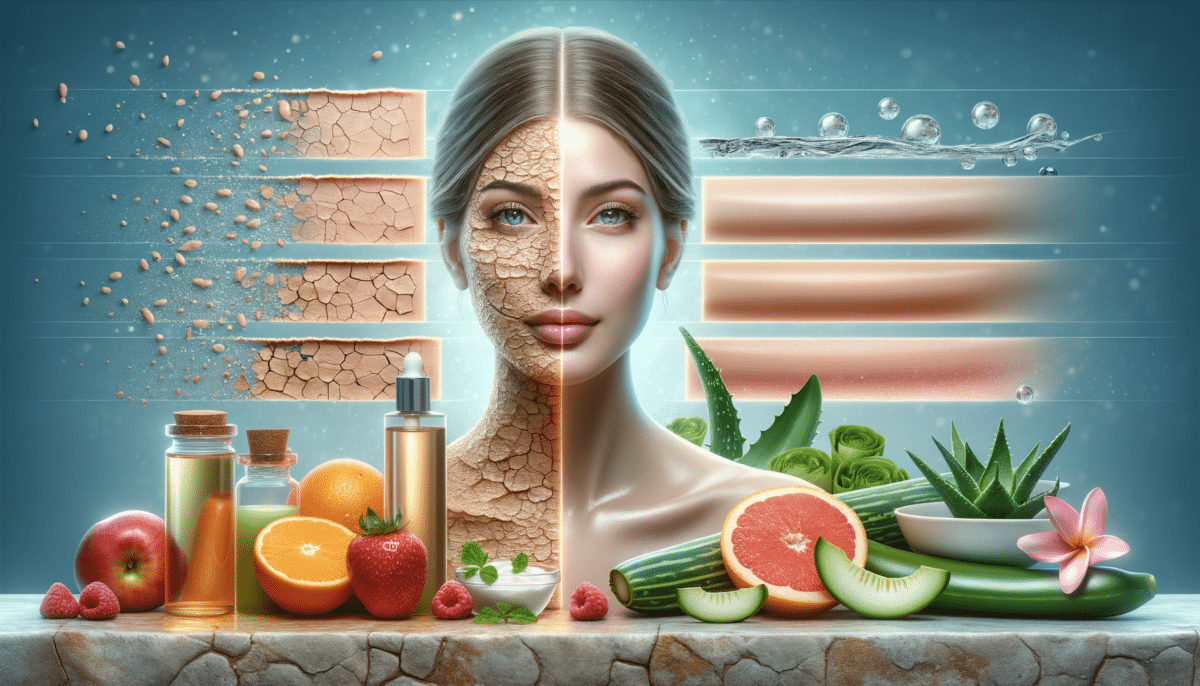The Importance of Skin Health
Our skin is more than just a protective barrier; it is a complex organ that plays a crucial role in our overall health. Maintaining healthy skin is essential not only for aesthetic reasons but also for its functional roles, such as regulating body temperature and protecting against pathogens. Healthy skin can enhance self-esteem and confidence, influencing our social interactions and mental well-being. Moreover, skin health is often a reflection of our internal health, with issues sometimes indicating underlying medical conditions.
Skin health can be influenced by numerous factors, including genetics, lifestyle choices, and environmental exposures. Understanding these factors is crucial in developing effective skincare routines and making informed decisions about products and treatments. By prioritizing skin health, we can prevent common skin issues such as acne, eczema, and premature aging, ultimately improving our quality of life.
Understanding Skin Types
Identifying your skin type is the first step in crafting a skincare routine that meets your specific needs. Skin types generally fall into five categories: normal, oily, dry, combination, and sensitive. Each type has unique characteristics and requires tailored care to maintain balance and health.
Normal skin is well-balanced, neither too oily nor too dry, and typically has a smooth texture. Oily skin, on the other hand, produces excess sebum, leading to a shiny appearance and is prone to acne. Dry skin lacks sufficient moisture, often feeling tight or rough, and may be prone to flaking. Combination skin exhibits traits of both oily and dry skin, usually with an oily T-zone and dry cheeks. Sensitive skin is more reactive and prone to redness and irritation.
Understanding your skin type can help in selecting appropriate products and treatments. For example, using a lightweight, oil-free moisturizer may benefit oily skin, while a richer, hydrating formula is better suited for dry skin. Sensitive skin often requires gentle, fragrance-free products to minimize irritation.
The Role of Nutrition in Skin Health
Nutrition plays a pivotal role in maintaining healthy skin. A balanced diet rich in vitamins, minerals, and antioxidants can enhance skin appearance and function. Certain nutrients are particularly beneficial for skin health, including vitamins A, C, and E, as well as omega-3 fatty acids and zinc.
Vitamin A, found in foods like carrots and sweet potatoes, is essential for skin cell production and repair. Vitamin C, abundant in citrus fruits and berries, aids in collagen synthesis, promoting skin elasticity and reducing signs of aging. Vitamin E, present in nuts and seeds, protects the skin from oxidative stress.
Omega-3 fatty acids, found in fatty fish and flaxseeds, help maintain skin moisture and reduce inflammation. Zinc, present in meat and legumes, supports skin healing and immune function. Incorporating these nutrients into your diet can improve skin texture, reduce inflammation, and promote a radiant complexion.
The Impact of Lifestyle on Skin Health
Lifestyle choices significantly affect skin health. Factors such as sleep, stress, exercise, and smoking can all influence skin condition. Adequate sleep is vital for skin repair and rejuvenation, as the body produces collagen and repairs damage during rest. Chronic sleep deprivation can lead to dull skin and the formation of fine lines.
Stress triggers the release of cortisol, which can increase oil production and exacerbate conditions like acne and eczema. Managing stress through activities like yoga or meditation can have a positive impact on skin health. Regular exercise improves circulation, delivering oxygen and nutrients to the skin, promoting a healthy glow.
Smoking accelerates skin aging by reducing blood flow and depleting essential nutrients, leading to wrinkles and a sallow complexion. Avoiding smoking and limiting alcohol consumption can help maintain skin vitality. By adopting healthy lifestyle habits, you can support your skin’s natural functions and maintain its youthful appearance.
Creating an Effective Skincare Routine
Developing a personalized skincare routine is crucial for maintaining skin health. A basic routine typically includes cleansing, moisturizing, and sun protection. Cleansing removes dirt, oil, and impurities, preventing clogged pores and breakouts. It is essential to choose a cleanser suitable for your skin type to avoid irritation or dryness.
Moisturizing helps maintain skin hydration, preventing dryness and flakiness. Selecting a moisturizer with ingredients like hyaluronic acid or glycerin can enhance hydration levels. Sun protection is vital in preventing premature aging and skin cancer. Applying a broad-spectrum sunscreen with an SPF of at least 30 daily can shield the skin from harmful UV rays.
In addition to these basic steps, incorporating targeted treatments such as serums or exfoliants can address specific skin concerns. For example, using a vitamin C serum can brighten the skin and reduce hyperpigmentation, while a gentle exfoliant can remove dead skin cells and improve texture. Consistency is key in any skincare routine, and it may take time to see noticeable results. By committing to a well-rounded skincare regimen, you can enhance your skin’s health and appearance.
